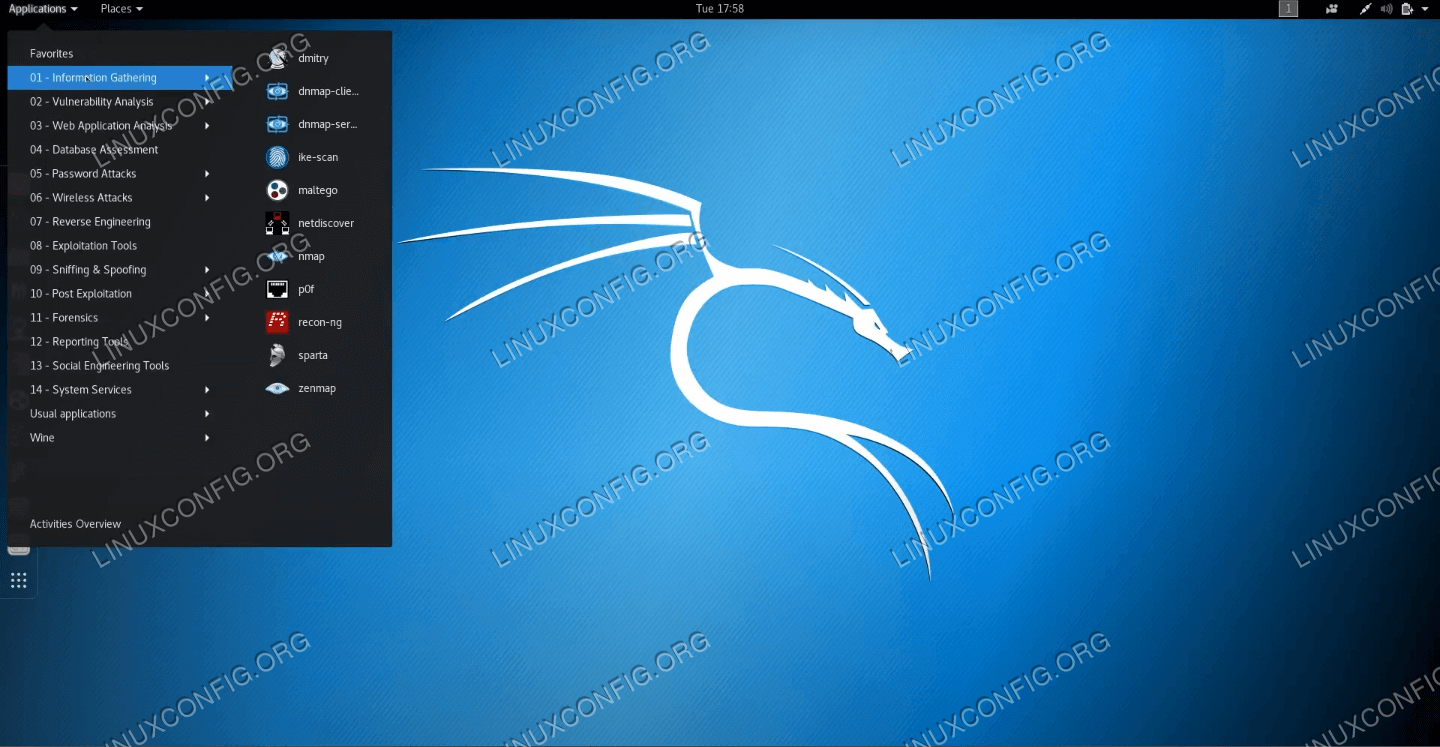

If you are on other platforms, such as Gentoo, you can build ExifTool from scratch here.ĮxifTool can also be used to view metadata related to the image.

Exiftool kali linux install#
So let's start with the installation of various distros:įor Debian derivatives: sudo apt install libimage-exiftool-perlįor RHEL-based distros: sudo dnf install perl-Image-ExifToolįor Arch-based distros: sudo pacman -S perl-image-exiftool So if you are looking for a way by which you can have various options to remove your Exif data that does not apply any image compression, then this should be your first preference.
Exiftool kali linux how to#
While this can be useful in various scenarios, it also has privacy threats and through this guide, I'll show you how to remove Exif data from images using the Linux command line. Lab Demoįor the demo, I will be doing a walkthrough of Pentester Academy’s Lab.įirst of all, run the server and navigate to the Lab Link.Most images contain Exif (Exchangeable image file format) data which includes some crucial data such as the date and time of capturing an image, device, place, and so on. Despite the tiny move in CVSS score, a change from authenticated to unauthenticated has big implications for defenders. The increase in score resulted from changing the vulnerability from an authenticated issue to an unauthenticated one. However, on September 21, 2021, GitLab revised the CVSSv3 score to 10.0. A remote attacker could execute arbitrary commands as the git user due to ExifTool’s mishandling of DjVu files, an issue that was later assigned CVE-2021-22204.GitLab assigned this issue CVE-2021-22205 and provided a CVSSv3 score of 9.9. At the time, GitLab described the issue as an authenticated vulnerability that was the result of passing user-provided images to the service’s embedded version of ExifTool. On April 14, 2021, GitLab published a security release to address CVE-2021-22205, a critical remote code execution vulnerability in the service’s web interface. When parsing the DjVu annotation, the tokens are eval to “convert C escape sequences”. This will allow any of the supported parsers to be hit instead of just JPEG and TIFF by just renaming the uploaded file. When uploading image files, GitLab Workhorse passes any files with the extensions jpg, jpeg, and tiff through to ExifTool to remove any non-whitelisted tags.Īn issue with this is that ExifTool (CVE-2021-22204) will ignore the file extension and try to determine what the file is based on the content. Improper neutralization of user data in the DjVu file format in vulnerable ExifTool versions allows arbitrary code execution when parsing the malicious image. This vulnerability exists in ExifTool versions >= 7.44. This vulnerability is actually dependent upon another vulnerability with CVE-2021-22204.
Exiftool kali linux software#
GitLab Community Edition (CE) is an open-source end-to-end software development platform with built-in version control, issue tracking, code review, CI/CD, and more. GitLab ExifTool Unauthenticated RCE vulnerability’s severity base score is 10. Improper neutralization of user data in the DjVu file format in ExifTool version 7.44 allows arbitrary code execution when parsing the malicious image. GitLab was not correctly validating image files passed to a file parser, resulting in remote command execution.

An issue has been discovered in GitLab CE/EE affecting all versions starting from 11.9. In 2021, a critical vulnerability was found in the GitLab server.


 0 kommentar(er)
0 kommentar(er)
